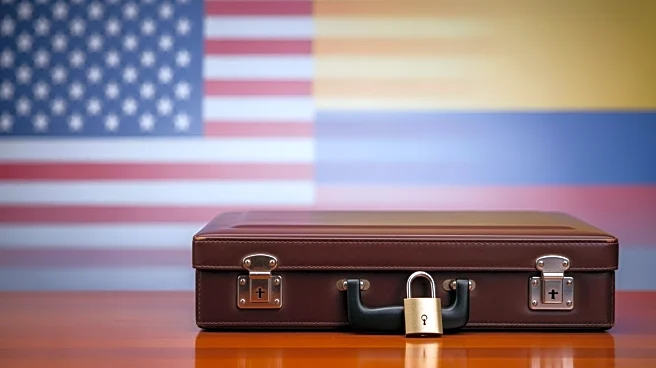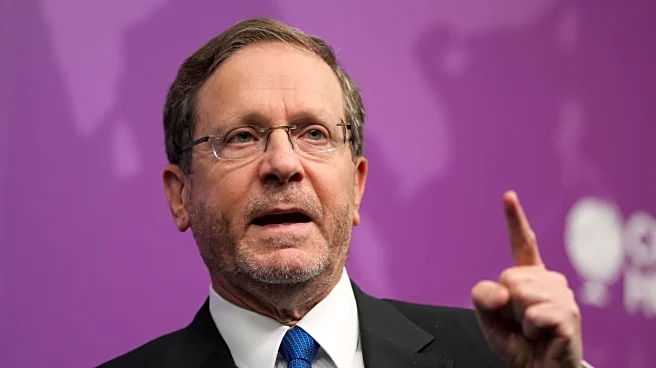What's Happening?
The ongoing federal government shutdown, now in its third week, is causing significant concern among federal workers who are expected to miss their first full paycheck this Friday. By law, these workers are supposed
to receive back pay once the shutdown ends, but the White House has cast doubt on this assurance, potentially affecting workers' spending habits and the businesses they frequent. The shutdown's economic impact is uncertain, but past instances have proven costly for both the government and the broader economy. Additionally, if Congress does not resolve the shutdown by next month, the food stamp program, which supports millions, may be unable to provide benefits. In a related development, Colombia has announced the withdrawal of its ambassador to Washington, marking a deterioration in relations since President Trump began his second term. This decision follows Trump's threats to cut U.S. aid and intervene in Colombia to combat cocaine trafficking.
Why It's Important?
The government shutdown poses a significant threat to the financial stability of federal workers and the businesses that rely on their patronage. The uncertainty surrounding back pay could lead to reduced consumer spending, impacting local economies. Furthermore, the potential disruption of the food stamp program could affect millions of Americans who depend on these benefits for their daily sustenance. On the international front, the strained relations between the U.S. and Colombia could have broader implications for U.S. foreign policy in Latin America, particularly in the fight against drug trafficking. Colombia's withdrawal of its ambassador signals a shift in diplomatic ties, which could affect cooperation on security and economic issues.
What's Next?
If the shutdown continues, federal workers may face prolonged financial uncertainty, and businesses could experience decreased revenue. Congress will need to act swiftly to resolve the shutdown to prevent further economic fallout and ensure the continuation of essential services like the food stamp program. In terms of international relations, the U.S. may need to engage in diplomatic efforts to mend ties with Colombia and address the concerns raised by President Gustavo Petro. The withdrawal of the ambassador could lead to further diplomatic isolation unless steps are taken to rebuild trust and cooperation.
Beyond the Headlines
The government shutdown highlights the vulnerability of federal workers and the critical role of government programs in supporting low-income families. It also underscores the importance of stable international relations in maintaining security and economic partnerships. The situation with Colombia may prompt discussions on the effectiveness of U.S. foreign aid and intervention strategies in Latin America, potentially leading to a reevaluation of policies that have long been in place.










